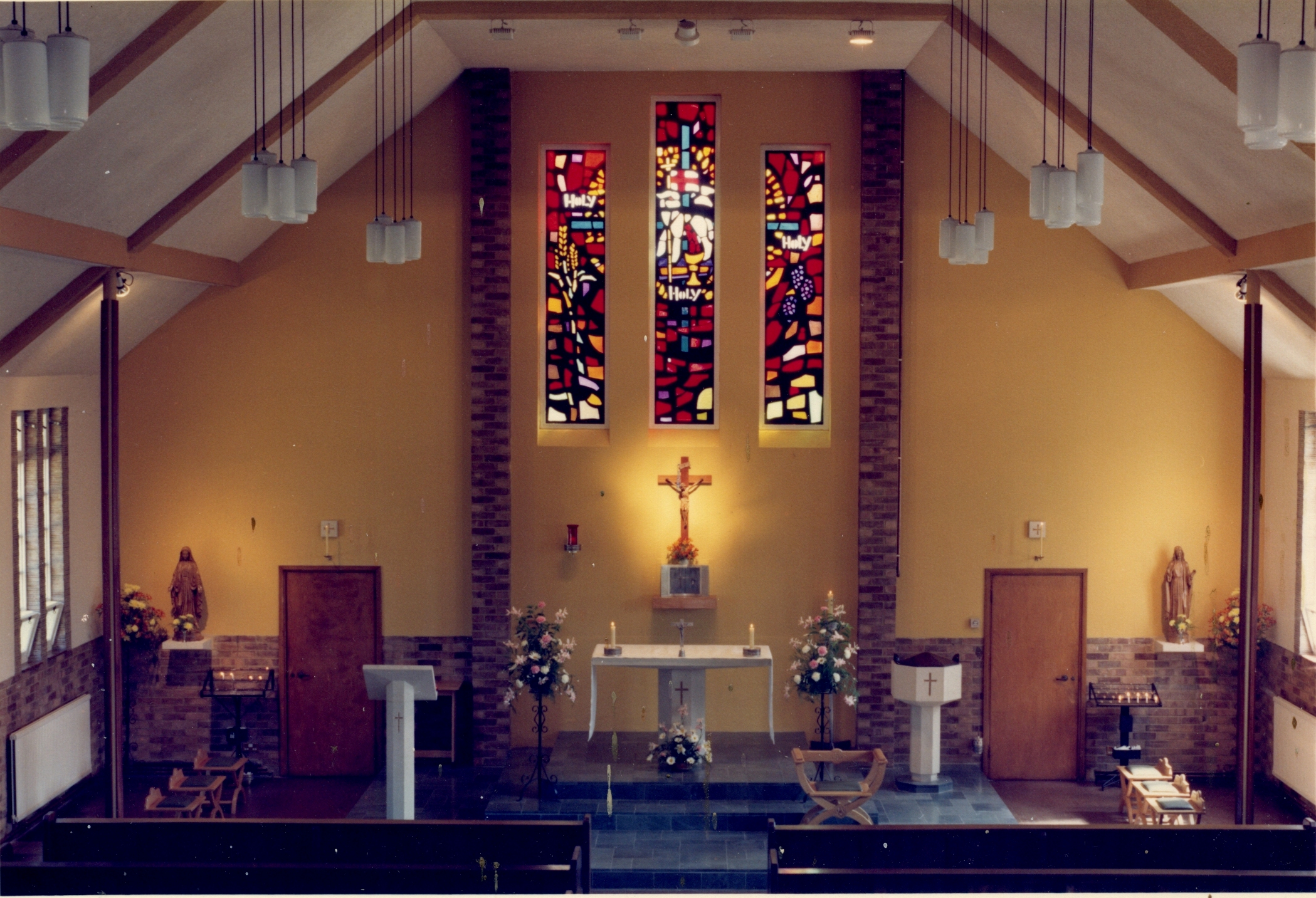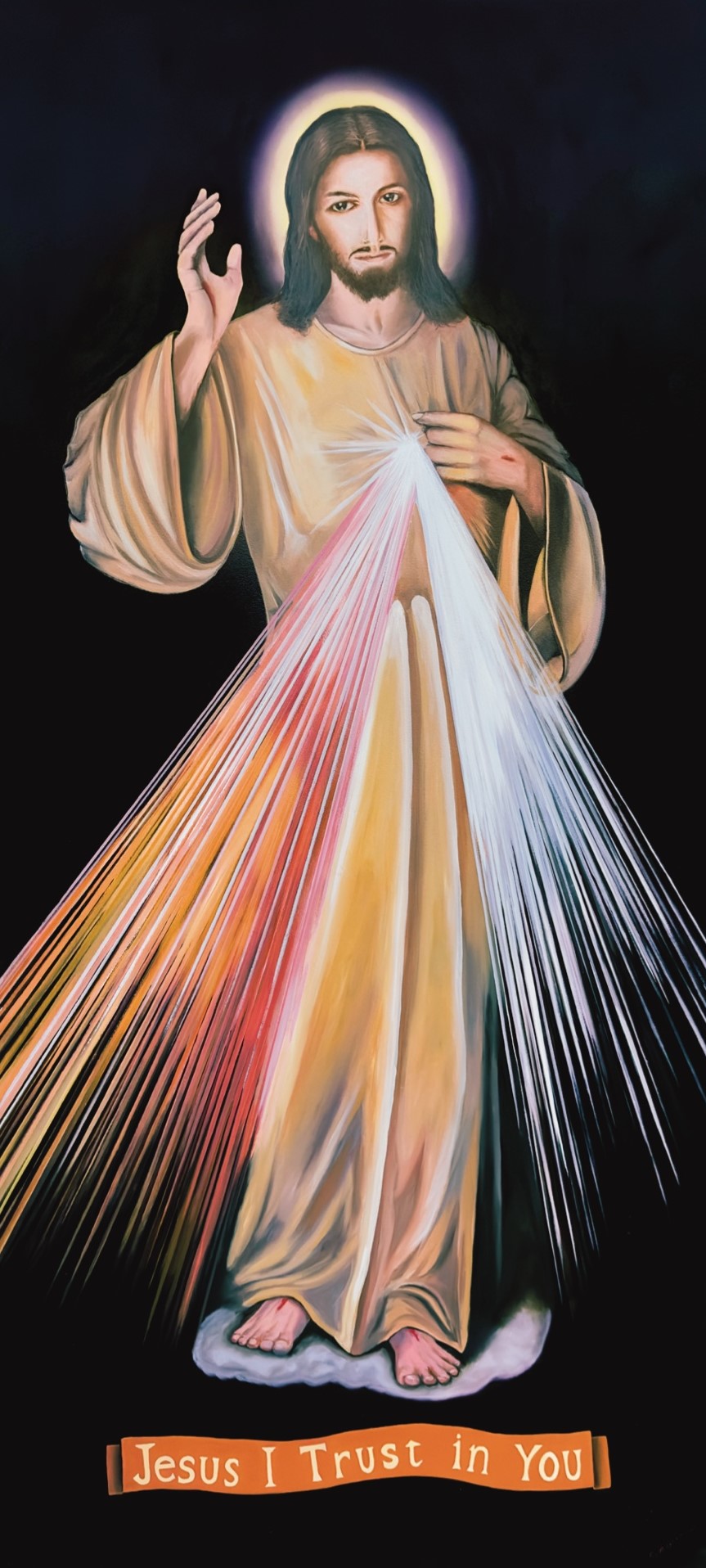
St Mary Magdalen's Parish Newsletter
The latest issue of the parish newsletter is available on-line: you can find it here.
Back copies of the parish newsletter from 2018 to date are also available on-line - select Newsletters from the menu bar, and then select the year required.
The Diocesan Newspaper
You can read the latest edition of Catholic East Anglia, the Diocesan newspaper on-line: you can find it here.
Fr Luke's Homilies
Each week, Fr Luke Goymour records and publishes his homily. You can listen to these recordings by clicking here.
The Divine Mercy
Each Friday, after the 10:00 am Mass, there will be Exposition, a Chaplet of Devine Mercy and Benediction
Third Sunday of Easter - 14th April 2024
On the third Sunday of Easter, we continue to hear Gospel accounts of Jesus’ appearances to his disciples following his Resurrection. Today’s reading, taken from the Gospel of Luke, follows immediately after the report of Jesus' appearance to his disciples on the road to Emmaus. This is the event being recounted by the disciples in the opening verse of today’s Gospel.
Consistently in the reports of Jesus’ post-Resurrection appearances, Jesus greets his disciples with the words, “Peace be with you.” This is a most appropriate greeting. The disciples have witnessed the death of someone they loved, and they now fear for their own lives as well. Peace is what they need more than anything else. Jesus often connects this greeting of peace with another gift - forgiveness. In today’s Gospel, this connection is made in the final verses.
Even as they hear Jesus’ greeting of peace, the disciples are startled and terrified. They are uncertain about what to make of the figure before them and, quite understandably, they mistake Jesus for a ghost. Yet the figure before them is not a ghost; Jesus invites them to experience his resurrected body with their senses, to look and to touch. The figure before them is flesh and bone, still bearing the marks of crucifixion. Although the disciples cannot forget his suffering and death, peace begins to take root in their hearts, as their fears turn to joy and amazement.
As further proof of his identity and of his resurrected body, Jesus eats with his disciples. The disciples have known Jesus best through the meals that he has shared with them. Descriptions of these meals are a defining element of Luke’s Gospel, and by eating with his disciples after his Resurrection, Jesus recalls all these meals, and most importantly, he recalls the Last Supper.
Luke’s report of the Last Supper and the meals that Jesus shared after his Resurrection unveil for us the significance of the Eucharist. Having shared a meal with his disciples, Jesus now uncovers for them the significance of what was written about him in the Scriptures. So, too, our celebration of the Mass is an encounter with Jesus, through the Word and the Sacrament of the Eucharist. As Jesus commissions his disciples to be witnesses to what Scriptures foretold, our celebration of the Eucharist commissions us, and, like the disciples, we are sent to announce the good news of Jesus’ forgiveness of sins. Courtesy Loyola Press.
Prayer for Peace in the Middle East
They will hammer their swords into ploughshares and their spears into sickles. Nation will not lift sword against nation, no longer will they learn how to make war.
Isaiah 2:4
God of peace, bearer of hope, we seek your help for the peoples of the Middle East.
Quiet the clamour of war and guide us towards peace.
Where there is hatred and division, sow seeds of calm and openness.
Where there is destruction, help us to rebuild.
Where children are crying, bring an end to tears.
Shelter your peoples and protect them.
Guide them and keep them from harm.
Show us how to break down the barriers of history and fear and breathe whispers of hope.
Amen.
Linda Jones / CAFOD
The Divine Mercy

You expired, Jesus,
but the source of life gushed forth for souls,
and the ocean of mercy opened up for the whole world.
O Fount of Life, unfathomable Divine Mercy,
envelop the whole world and empty Yourself out upon us.
This picture of the Divine Mercy was painted by Ben Goymour and hangs in St Mark's Catholic Church, Ipswich.
Each Friday morning after the 10:00 Mass at St Mary Magdalen church, we pray a chaplet of the Divine Mercy in front of the Blessed Sacrament, followed by Benediction.


